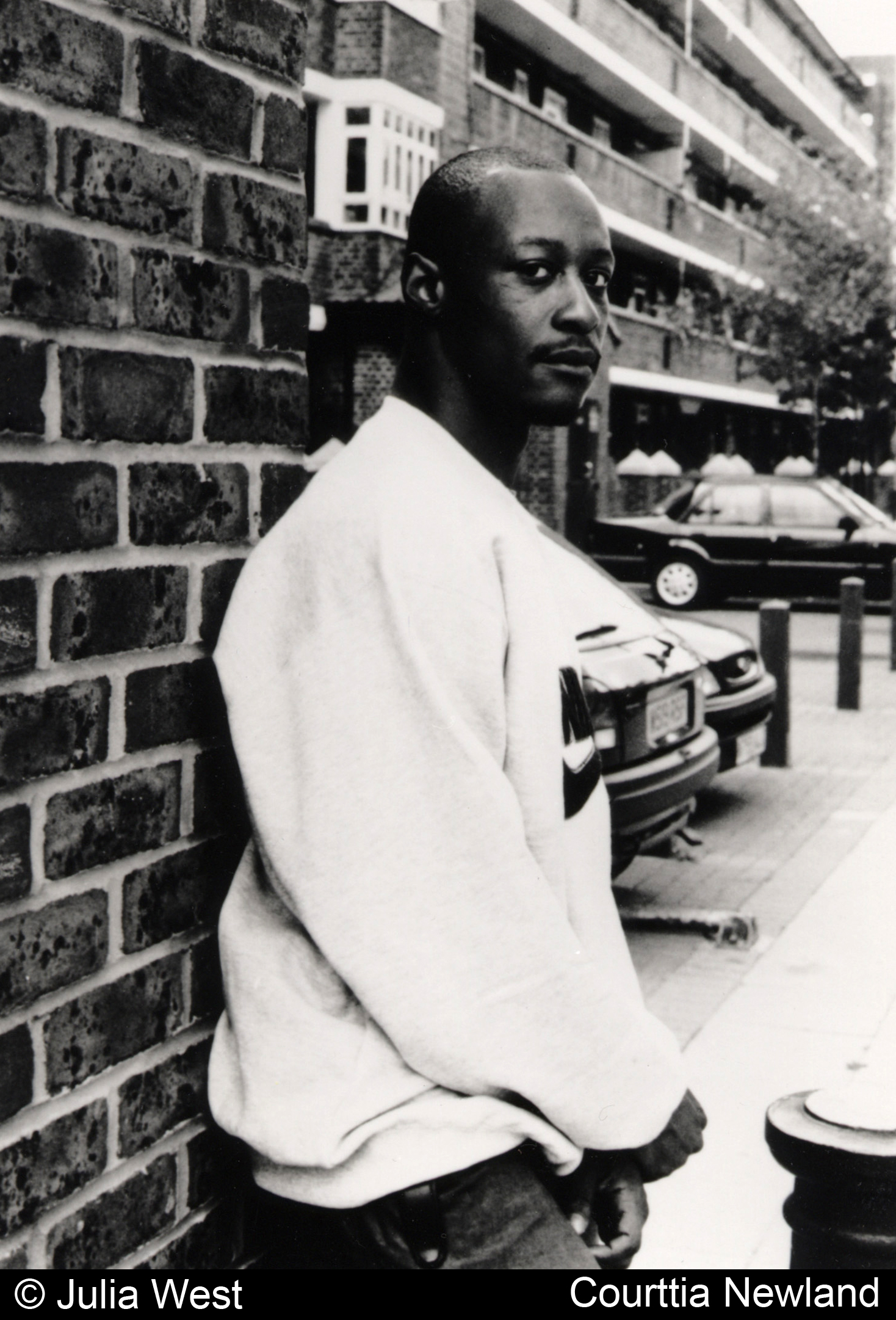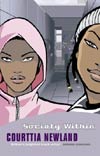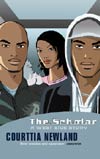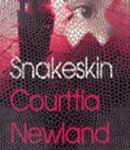 It's truthful to say that I have always written. When I was an infant it was in the form of songs that I would perform for my school friends. There was even a stint where my dad bought me a dictaphone for my birthday, and I would sell tapes to them, even though they lacked the machine that could actually play them. From there, I went on to writing stuff usually based on the TV shows that were on at the time - stuff like Knight Rider, Dukes of Hazzard and others. Though these pieces were inevitably filled with the innocence of youth, I recall that I managed to work out chorus, verse and bridges with some skill. Then one day, while travelling somewhere in my dads car, I heard him playing some early Hip Hop. I remembered being mesmerised by what I heard. And that was it. No more songs for me. I wanted to be a rapper.
It's truthful to say that I have always written. When I was an infant it was in the form of songs that I would perform for my school friends. There was even a stint where my dad bought me a dictaphone for my birthday, and I would sell tapes to them, even though they lacked the machine that could actually play them. From there, I went on to writing stuff usually based on the TV shows that were on at the time - stuff like Knight Rider, Dukes of Hazzard and others. Though these pieces were inevitably filled with the innocence of youth, I recall that I managed to work out chorus, verse and bridges with some skill. Then one day, while travelling somewhere in my dads car, I heard him playing some early Hip Hop. I remembered being mesmerised by what I heard. And that was it. No more songs for me. I wanted to be a rapper.
This desire stayed with me for the next ten years. Thoughts of being a novelist were rare, even though I was reading adult books by that time (mostly film tie-ins - by the age of nine I'd read ET, Close Encounters of the Third Kind, Fame and Laws). I had written more than my fair share of stories. Just before I began my rap career in earnest, by the grand old age of eleven, I had already paged one-hundred and twelve pages about a kid from England that wins a competition to meet Michael Jackson. My new secondary school English teacher was impressed enough to encourage a career as a novelist. But I refused. All I wanted to do was write lyrics and live the rap life. Though I enjoyed writing, I felt that books were something you did when you were older - much older -and as I hadn't even become a teenager yet, I felt that I had plenty of time. I would enjoy a successful music career, then write books when I couldn't entertain any more easy.
Suffice to say my career in the entertainment industry didn't go as well as Id hoped. I spent years performing at Tim Westwood shows (aged 13), on the radio and even pressing one thousand white labels in the early days of drum n' bass (aged 19), but nothing happened. Though the record was successful, no big companies camewaving any deals. Slowly, my production team sought other means of employment. I didn't, and remained unemployed for close to four years. Then I had an idea for a novel. The Scholar was in part a continuation of another book I'd started years ago and never finished - The Brothers Grimm. While the earlier work was an epic spanning three generations and detailing West Indian migration, The Scholar was smaller in scope, focusing on a (then) current story - the lives of third generation children of those immigrants, living day to day London life. When all my friends went on at me to write the story I would tell them in detail over and over again, I decided I would. Helped by others (who lent me a computer), I wrote eight hundred pages in just under eight months, my biggest work to date. When it was finished, I was pleased with the results. Deciding that I had to find an agent, I went on the hunt. The results, as they say, are history.
I signed to William Morris Agency in the spring of '96, and not long afterwards I found myself a publisher. The next year, after months of rewrites and research, my book was published. It was a weird feeling seeing my title on the shelves, and the cover image of two black youths, one male one female, stood out like a beacon at the Dillon's in Tottenharn Court Road. In what seemed like an instant, my phone constantly rang for interviews and readings. By the summer (The Scholar was published in April) I remember counting that I had performed at 150 readings, some even abroad. I could grow to enjoy the promising reviews and encouraging praise from my audience. I wanted the buzz of a second book.
 After scrapping my first attempt, Altered Minds, which I finished but hated, I went on to write Society Within. As the title comes from a line spoken by one of the characters in my second novel, I know that Altered must have been useful in some small way. Society was a return to Greenside, the estate that featured in my first book, and I enjoyed writing it a lot. In many ways I felt as though, writing wise, Id grown up in public. The Scholar was my first completed novel. While I'm proud of it and know it has its own merits, Society gave me the chance to rectify my mistakes and concentrate on getting the work to a certain standard, instead of merely telling a good story.
After scrapping my first attempt, Altered Minds, which I finished but hated, I went on to write Society Within. As the title comes from a line spoken by one of the characters in my second novel, I know that Altered must have been useful in some small way. Society was a return to Greenside, the estate that featured in my first book, and I enjoyed writing it a lot. In many ways I felt as though, writing wise, Id grown up in public. The Scholar was my first completed novel. While I'm proud of it and know it has its own merits, Society gave me the chance to rectify my mistakes and concentrate on getting the work to a certain standard, instead of merely telling a good story.
There was a great reaction when it was published. Some reviews were better than I could've written myself. To date, two years later, a strange thing has happened with that book. On a street level, everyone is reading it and my phone has run eleven times this year with people telling me they've seen someone with it, or finally read it themselves and think it's good. A buzz is spreading again, which is exciting to see. I can't help thinking it will build anticipation for the next.
In between the novels I found the world of theatre. Around the time that my first novel was about to be published, I was starting to realise that I would have to do something called 'performance readings'. This was where I would have to read extracts from The Scholar in front of an audience of people, and sometimes take a Q and A session. The first time I did this was at Thames Valley University in Ealing, west London, and it was one of the most embarrassing moments in my life. Clearly nervous, I was introduced, then tripped getting up onto the stage and tripped again when I finished and left! To top things off, during the reading my phone rang. In my nervous state, I couldn't turn it off and so I was forced to answer while the audience stood in front of me in shock and amusement...
Luckily, the watching crowd thought that it was all a staged part of the reading, or at least took it as confirmation that I came from the same background as the characters in my novel. I sold around 25 copies that day, and realised that if I wanted to do even better, I had to perfect my reading, or at least learn to do it as best as I could. I spoke to my mentor, a man called Barney Platts-Mills, and he told me about an American that had just converted a former Postal Sorting office into his home and a personal theatre venue. He told me to go and see him to discuss my forthcoming readings (I had a big one with an African American writer called Albert French and I didn't want to mess it up). I took the advice and decided to pay this American a visit.
When I got to the venue I was greeted by Riggs 0' Hara, owner of the space, a wildly enthusiastic man with lots to say about the arts. I told him what I wanted to do and he responded by showing me a copy of The Scholar and asking me to sign it. I was impressed. The book hadn't been out long, and was very underground, so the fact that some white guy from New York had bought a copy was worth a gold star by my reckoning. He asked me to read him a passage, and I did. He listened, asked me to read again, then gave me tips on pace, breathing and things like that. Basically, I was reading too fast. When I finished and was leaving his home, Riggs told me that in return, would I write him a play. I hesitated. Riggs laughed and said that maybe I should try it, as most of my work at that stage was dialogue based, and I might just enjoy it. I promised to give it a go, left and put the Post Office Theatre out of my mind for a while.
 Not long after that, I went to a reading in a local library hosted by Steve Pope of Xpress publishing, and Patrick Augustus, author of the Baby Father novels. There, I met a young actress and part-time journalist, Carol Moses. She told me that she'd just been given some money by an Arts organisation to create a theatre piece for the first Portobello Festival. She was looking for a writer and director and had already gone to see Riggs 0' Hara, who had volunteered his directorial services. She asked if I'd like to come on board as a writer, as she had some ideas and a title, Estate of Mind It was to be a one-woman monologue about a teenage girl and her mentally unstable boyfriend. Both came from a council estate background, and both visit a counsellor to talk over their problems. The audience would collectively take the place of the counsellor. I liked the idea, and with that in mind, I began to write my first play.
Not long after that, I went to a reading in a local library hosted by Steve Pope of Xpress publishing, and Patrick Augustus, author of the Baby Father novels. There, I met a young actress and part-time journalist, Carol Moses. She told me that she'd just been given some money by an Arts organisation to create a theatre piece for the first Portobello Festival. She was looking for a writer and director and had already gone to see Riggs 0' Hara, who had volunteered his directorial services. She asked if I'd like to come on board as a writer, as she had some ideas and a title, Estate of Mind It was to be a one-woman monologue about a teenage girl and her mentally unstable boyfriend. Both came from a council estate background, and both visit a counsellor to talk over their problems. The audience would collectively take the place of the counsellor. I liked the idea, and with that in mind, I began to write my first play.
You have to understand that at that point, I was just doing it because Id been asked and because I would be paid a hundred pounds, not for any love of the theatre. The only theatre Id seen was a run of Black plays that my mum had taken me to in the eighties, and some stuff Id seen while I studied drama at school. Though I'd loved the black plays, I hadn't been inspired enough to think about writing my own, and the plays I saw at school hadn't inspired me at all. Nevertheless, I found that once Carol, Riggs and myself sat down to talk about the characters and settings, I had enough material and experience to work with. I wrote the first 20 minute monologue in a day, the second in about two days, and presented it to Riggs, who liked it very much. Not long after that, we got Carol in for a read-through.
That was when I fell in love with theatre. From the moment Carol began saying the words Id written, exactly how they were meant to sound, and Riggs began making directorial comments about my characters that were right and true, I began to see how immediate and entertaining this art form could be. How I say more things, reach more people, have more effect with those words on that page. How enjoyable it was working with two people I trusted and respected, rather than siting in a room on my own filling a blank screen with my thoughts. Over the years I've come to find that I still love the solitude of writing books, while the plays provide the break that I need. We performed the play to a packed house and raised the roof. On the last night, Carol, in the character of Richard, Adinicky's troubled and militant boyfriend asked the crowd if they were with her. When the audience screamed out 'YES!' I was sure that I had found my new medium and the Post Office Theatre Company was born. Over the next five years we ranged from a full length version of Estate, a modern adaptation of Trojan Women, and an original two act play, The Far Side. The fast was performed at The Tricycle Theatre the previous year, to a packed audience. This year we hit The Lyric Theatre, Hammersmith, with a new two act play, Mothers Day.
After Society Within and during the writing of The Far Side I decided to work on an idea that had been floating around for a while. The Foundation of Fear (!), which was soon to be renamed Snakeskin, is a detective novel. It  follows PI Ervine lames' quest to find the killers of a Labour MP's daughter. lames is the older brother of a character that appears in The Scholar, Douglas lames, but all links to that novel end there. Although set in the same world, Snakeskin is the voice of an older man, someone who has left estate life behind him, unsure whether it was the right move. It took the longest time to write and is the shortest of the books so far. It is also the first to fully tackle the delicate subject of race. As I write this I realise that I'm not really sure what the reaction to this new book will be. My only real worry is that the people who read and loved my past works, read and love this one too. For myself, I felt the need to branch out from the 'ghetto writing' niche I have been deposited in. I've been saying I'm a storyteller from day one.
follows PI Ervine lames' quest to find the killers of a Labour MP's daughter. lames is the older brother of a character that appears in The Scholar, Douglas lames, but all links to that novel end there. Although set in the same world, Snakeskin is the voice of an older man, someone who has left estate life behind him, unsure whether it was the right move. It took the longest time to write and is the shortest of the books so far. It is also the first to fully tackle the delicate subject of race. As I write this I realise that I'm not really sure what the reaction to this new book will be. My only real worry is that the people who read and loved my past works, read and love this one too. For myself, I felt the need to branch out from the 'ghetto writing' niche I have been deposited in. I've been saying I'm a storyteller from day one.
Now it is put up or shut up time. The honeymoon period is over. For all, I think the novelty of 'young, urban writer' has worn thin. Time will tell if I am destined to be here for the long haul. At the moment though, I'm feeling pretty good.
discount coupons for prescriptions
activeslo.com cialis manufacturer coupon 2016
abortion pill pictures
abcomke.sk abortion pill facts
where can i buy low dose naltrexone
read naltrexone uses